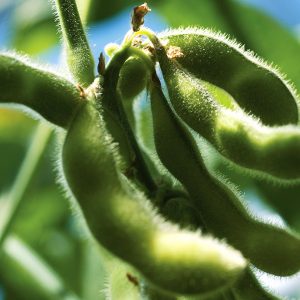
They myths around Soy have been circulating for years. Research in several areas of healthcare has shown that consumption of isoflavones may play a role in lowering risk for disease. They can fight disease on several fronts. The following potential health benefits are attributed to isoflavones:
- Ease menopause symptoms – The benefits of soy go beyond reducing long-term cancer risk. Recent studies have found that soy isoflavones can reduce menopause symptoms such as hot flushes and increase bone density in women. Indeed, many menopausal and post-menopausal health problems may result from a lack of isoflavones in the typical Western diet. Although study results are not entirely consistent, isoflavones from soy or red clover may be helpful for symptoms of menopause. A study carried out by “Health Test” in 2004 investigated the prescription behaviour of 27 doctors for women with menopause symptoms. It showed that isoflavones were recommended twice (44%) as often as hormonal treatment (22%). The prescribed supplements were mainly based on the following plants: soy, black cohosh and hops.
- Reduce heart disease risk – Soy isoflavones also appear to reduce cardiovascular disease risk via several distinct mechanisms. Isoflavones inhibit the growth of cells that form artery clogging plaque. These arteries usually form blood clots which can lead to a heart attack. A review of 38 controlled studies on soy and heart disease concluded that soy is definitely effective for improving cholesterol profile. There is some evidence that isoflavones are the active ingredients in soy responsible for improving cholesterol profile.
- Protect against prostate problems – Isoflavones may be benificial for men’s health because they may protect against enlargement of the male prostate gland. Studies show isoflavones slowed prostate cancer growth and caused prostate cancer cells to die. Isoflavones act against cancer cells in a way similar to many common cancer-treating drugs.
- Isoflavones improve bone health – Soy Isoflavones help in the preservation of the bone substance and fight osteoporosis. This is the reason why people in China and Japan very rarely have osteoporosis, despite their low consumption of dairy products, whereas in Europe and North America the contrary happens. Unlike estrogen, which helps prevent the destruction of bone, evidence suggests that isoflavones may also assist in creating new bone. Other studies are not entirely consistent, but evidence suggests that genistein and other soy isoflavones can help prevent osteoporosis.
- Reduce cancer risk – Isoflavones seem to be protect agains tumors because they act against cancer cells in a way similar to many common cancer-treating drugs. Population-based studies show a strong association between consumption of isoflavones and a reduced risk of breast and endometrial cancer. Women who ate the most soy products and other foods rich in isoflavones reduced their risk of endometrial cancer by 54%.
Isoflavones are natural antioxidants
A recent study has demonstrated that isoflavones have potent antioxidant properties, comparable to that of the well known antioxidant vitamin E. The antioxidant powers of isoflavones can reduce the long-term risk of cancer by preventing free radical damage to DNA. Genistein is the most potent antioxidant among the soy isoflavones, followed by daidzein.
book an appointment with Linda
https://bestbody4life.au1.cliniko.com/bookings